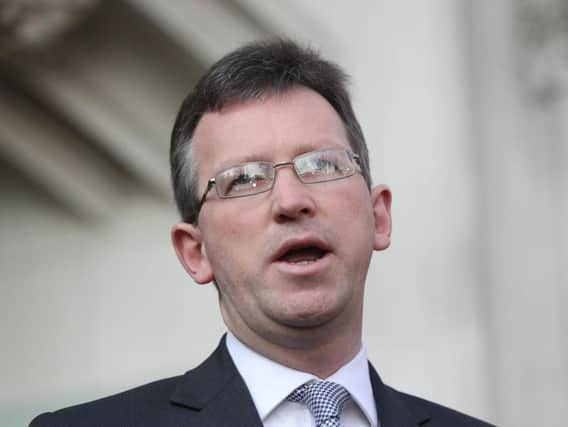Attorney General calls for 'trial by social media' evidence after case of murdered Hartlepool woman Angela Wrightson


Attorney General Jeremy Wright QC is appealing for victims' groups, solicitors and judges to provide evidence of what effect social media has on criminal trials.
Examples of court orders and reporting restrictions being breached by such online posts are wanted by Mr Wright.
Advertisement
Hide AdAdvertisement
Hide AdThe initiative follows recommendations by the senior appeal court judge, Sir Brian Leveson, after legal challenges in the Angela Wrightson case.
The 39-year-old was killed in a brutal and sickening attack at her home in Hartlepool in 2014. Two schoolgirls were eventually convicted of the murder last year.
The first trial of the teenagers was abandoned by the crown court judge after a string of social media comments and abuse lawyers said threatened to prejudice the hearing.
Mr Wright's office will compile a report following the so-called Call for Evidence, setting out whether changes need to be made to address any potentially increased risks caused by social media use.
Advertisement
Hide AdAdvertisement
Hide AdHe said: "Every defendant in this country is entitled to a fair trial where a verdict is delivered based on the evidence heard in court.
"Our contempt of court laws are designed to prevent trial by media, however, are they able to protect against trials by social media?
"I am looking for expert evidence on whether the increasing influence and ubiquity of social media is having an impact on criminal trials and if so, whether the criminal justice system has the tools it needs to manage that risk."
The Call for Evidence is open until December 8.
Mr Wright said it was "unrealistic" to expect jurors not to look at social media during the course of a trial.
Advertisement
Hide AdAdvertisement
Hide AdHe told BBC Radio 4's Today: "I think we have to accept that asking jurors - over trials that may take weeks, not just days - never to look at social media when it may be such an integral part of their daily lives, is unrealistic.
"If they are looking at social media, not looking deliberately for anything about the case they are hearing but stumbling upon it, then that will have a bearing on how they decide the case.
"That's why we have to be very clear that the responsibility lies not just on jurors not to look for this material but on people who post to be more responsible about what they say."
Social media companies had a part to play and the Government was having some "very robust conversations" with them about their responsibilities across a range of issue but it was not reasonable to say it was "their job alone" to stop people posting prejudicial comments.